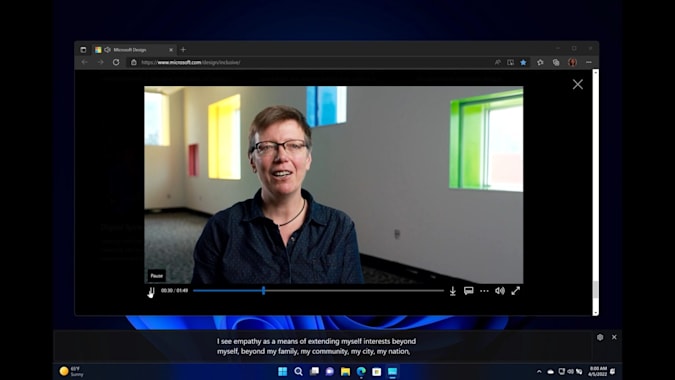Microsoft just unveiled a set of news around windows 11 and its capabilities for hybrid work, bringing things like system-wide improvements to video-calling tools on PCs. It also announced some changes coming to the beloved File Explorer, with the biggest being a redesign and a highly anticipated tabs feature.
According to the company’s release, “the redesigned, cloud-powered File Explorer” would let you “see all files in one centralized place.” You will be able to pin files and create tabs, keeping your most frequently visited folders within easy reach.
In a video demonstrating the new features, it looks like you can right click on a file or document and select “Add to Favorites” to pin it. And if you want to have multiple File Explorer tabs open, you can click a plus symbol at the top left of the window to start a new tab, and they look just like browser tabs.
The company also added touch Snap layouts to make it easier to quickly arrange your apps on touch-enabled devices.
Microsoft has called Windows 11 the most accessible and inclusive version of Windows ever, and today it shared more around some assistive tools coming to the platform. A system-wide Live Captions feature, which was announced earlier this year, would transcribe all audio on your PC, including content streaming from the web. A focus mode could help people with ADHD to be more productive, the company said.
To keep your sensitive information safe, the company is bringing two new tools to Windows 11: Microsoft Defender SmartScreen and Smart App Control. The former will detect when you’re entering your Microsoft account login info into a “malicious application or hacked website,” potentially protecting you from phishing attacks.
Microsoft
Smart App Control, meanwhile, uses the company’s AI and code signing to make sure only trusted applications can be run on your PC. This”[blocks] one of the largest attack vectors on Windows by default,” Microsoft said. The company also said it plans to bring more features to its Pluton security processor, and can also help organizations ensure their fleets of devices retain the right registry keys.
Microsoft hasn’t shared when exactly these features will be released to the public version of Windows 11 just yet, but it sounds like they’re coming soon.
All products recommended by Engadget are selected by our editorial team, independent of our parent company. Some of our stories include affiliate links. If you buy something through one of these links, we may earn an affiliate commission.
